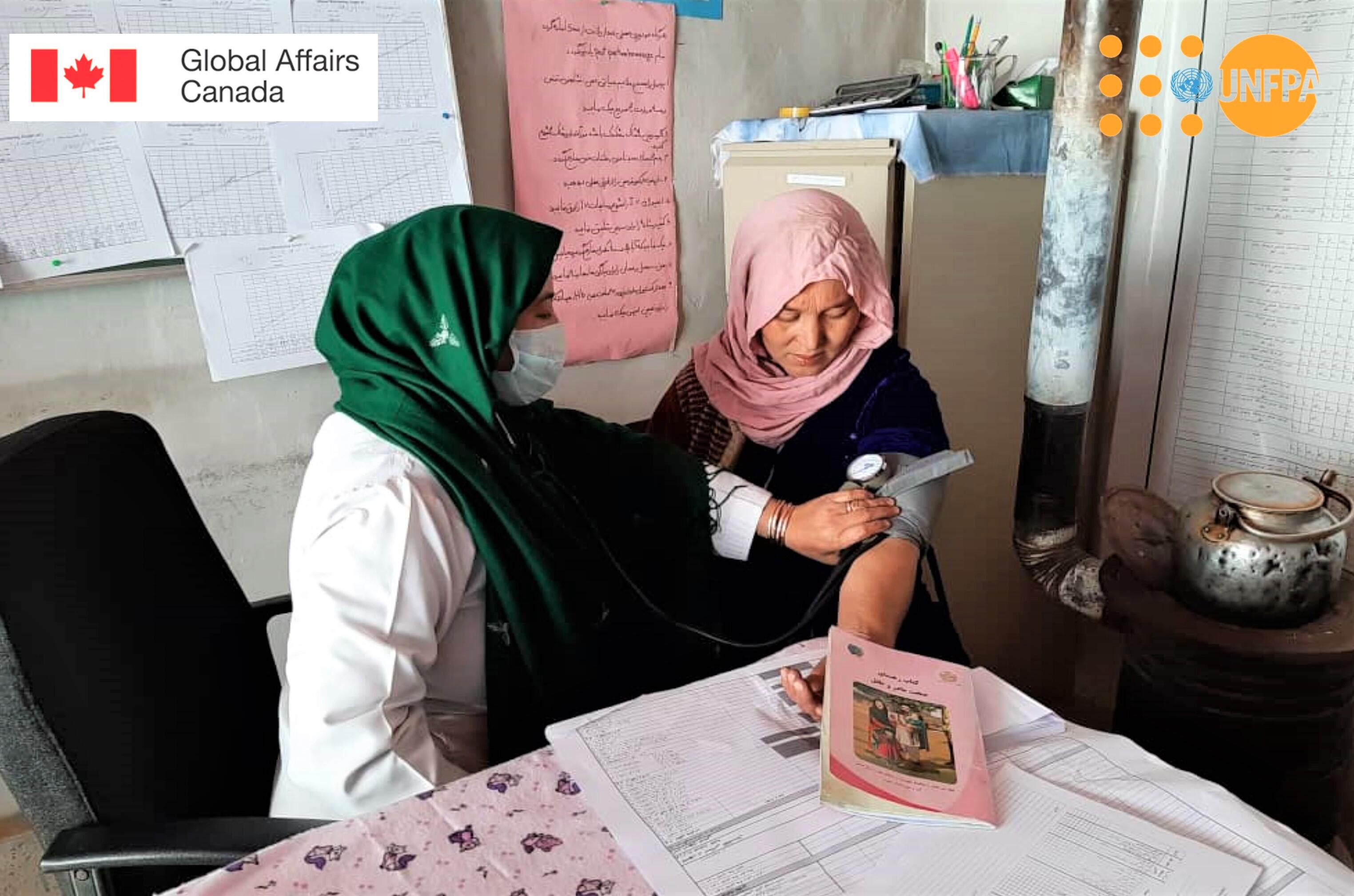Daikundi, Afghanistan – “It was Midnight, 6 Aug 2020, when there was a loud knocking at my front door. My husband answered. Standing in the dark was a person asking for my help – a baby was being born”, Shirin (31), the midwife of Family Health House (FHH) in Daikundi Province described. “I recognized the man at the door. He was a family member of Fatima, a pregnant lady who had been coming to the FHH frequently. But tonight her situation was critical”.
In this remote part of Afghanistan, hundreds of women have received Shirin’s support; who graduated from the Canadian supported Community Midwifery Education (CME) in 2015. Directly after her graduation, Shirin started her work as a midwife in the FHH of Usho Golaka village, in Shahristan district. The Usho Gholaka FHH is located in a hard to reach and remote area of and is 160 km from the center of the Province.
Fatima (37), is the mother of six children. When she reached out to Shirin that late night, she was having birthing complications for the delivery of her seventh child. She received antenatal, delivery, and postnatal support from Shirin. She was referred to FHH for antenatal services in the third week of May, 2020. “Fatima’s baby was found to be in the wrong position and the delivery was to be a breach birth—which is a complicated delivery case”, Shirin said. “I provided information and counselling on her condition but advised her to refer the case to the provincial hospital in Nili, the center of Daikundi, for further management of her delivery”.
Although Shirin recommended that Fatima should visit the provincial hospital, Fatima didn’t follow the recommendation and didn’t visit the provincial hospital. “We’re a poor family and the economy and unavailability of transport was a big problem for us”, Fatima expressed. “We would have had to pay AFN 13,000 [$170] for transport to reach the provincial hospital in Nili. This was not possible”. Fatima’s husband is a farmer and his income is only able to support the family’s daily needs.
Shirin’s work is supported by her husband. He is there to help her at all hours—and that night he took Shirin to the village where Fatima and her family live on his motorbike. “The intent was to save a mother and her baby. I’ve pledged to support my wife in this work, even if it’s midnight,” Shirin’s husband said.
When Shirin reached Fatima’s house, she found that Fatima was suffering from the most terrible pain and was shouting for help. After examination, she found that Fatima’s membrane had ruptured, and the baby was in breech. “I emphasized that Fatima has to be taken to the provincial hospital, but still neither Fatima nor the family were ready to move and go”, Shirin stated. “Fatima’s family and her children were crying and begging for help, but I knew that taking her to a provincial hospital was the best option.”
Faced with the family’s refusal to go to the provincial hospital, Shirin had to seek alternative solutions to save the lives of both the mother and baby in this critical situation. “I called an expert gynecologist who was working in the provincial hospital and asked for instructions. This was the only solution I could come up with that might save their lives. I was instructed to use different maneuvers to shift the position of the baby in the womb. I followed the gynecologist’s guidance carefully,” Shirin stressed. “Finally, the uterine contraction began and a baby boy was born after one hour and 45 minutes of labor. He was safe and healthy”.
Shirin shared this as one of the most challenging cases she’s ever faced. Despite her recommendations, the family didn’t visit the provincial hospital. Unfortunately, this is often the case, when families don’t have the financial means to travel. “I was very proud of what I did”, said Shirin. “I could see the appreciation in Fatima’s eyes. She was so thankful. When she visited a few days after her delivery, she told me that I helped grant her a new life and helped her baby to stay alive.”
It’s not only Fatima who is happy. The family members are also very happy and grateful. “When I heard that Fatima and her baby are alive, I can’t tell how much happy I was.” Fatima’s mother-in-law said. “I am so grateful to Shirin for being there and helping women in need.”
Fatima visited the FHH four times for antenatal and postnatal services. She received services including vaginal care, proper rest, breast feeding, nutrition, and taught care related to physical and emotional change. “I’m grateful to Shirin, she saved not only my life but also the life of my child,” Fatima said.
UNFPA Afghanistan thanks Global Affairs Canada for the generous contribution that has been so instrumental in saving the lives of mothers and babies in Afghanistan.


